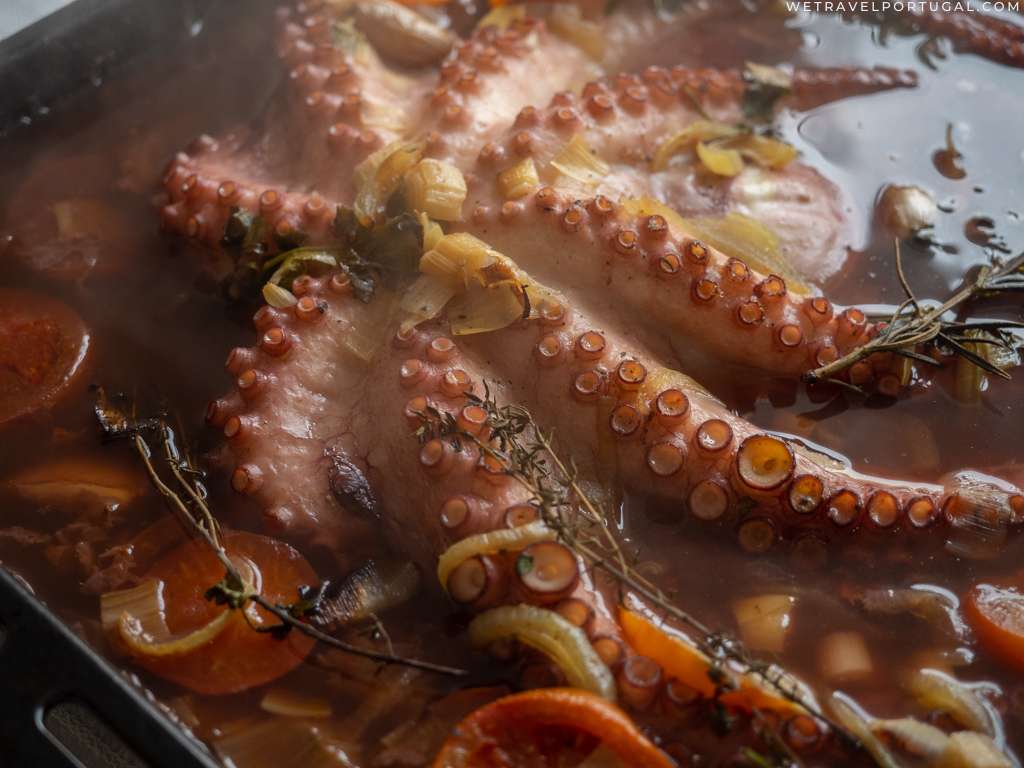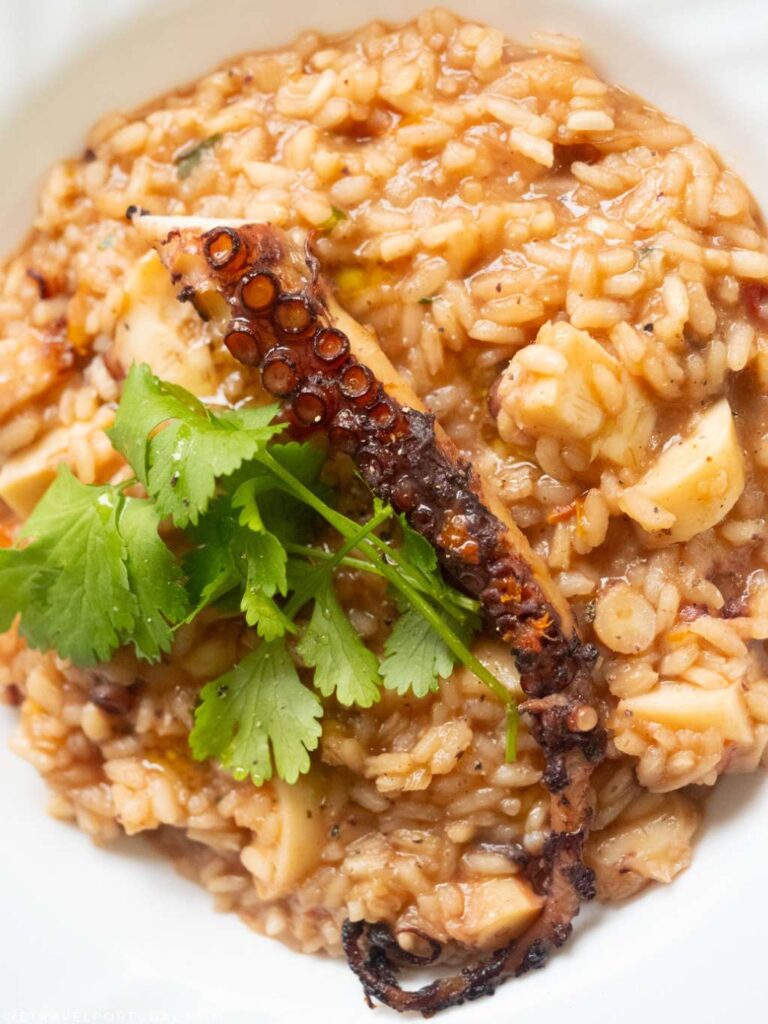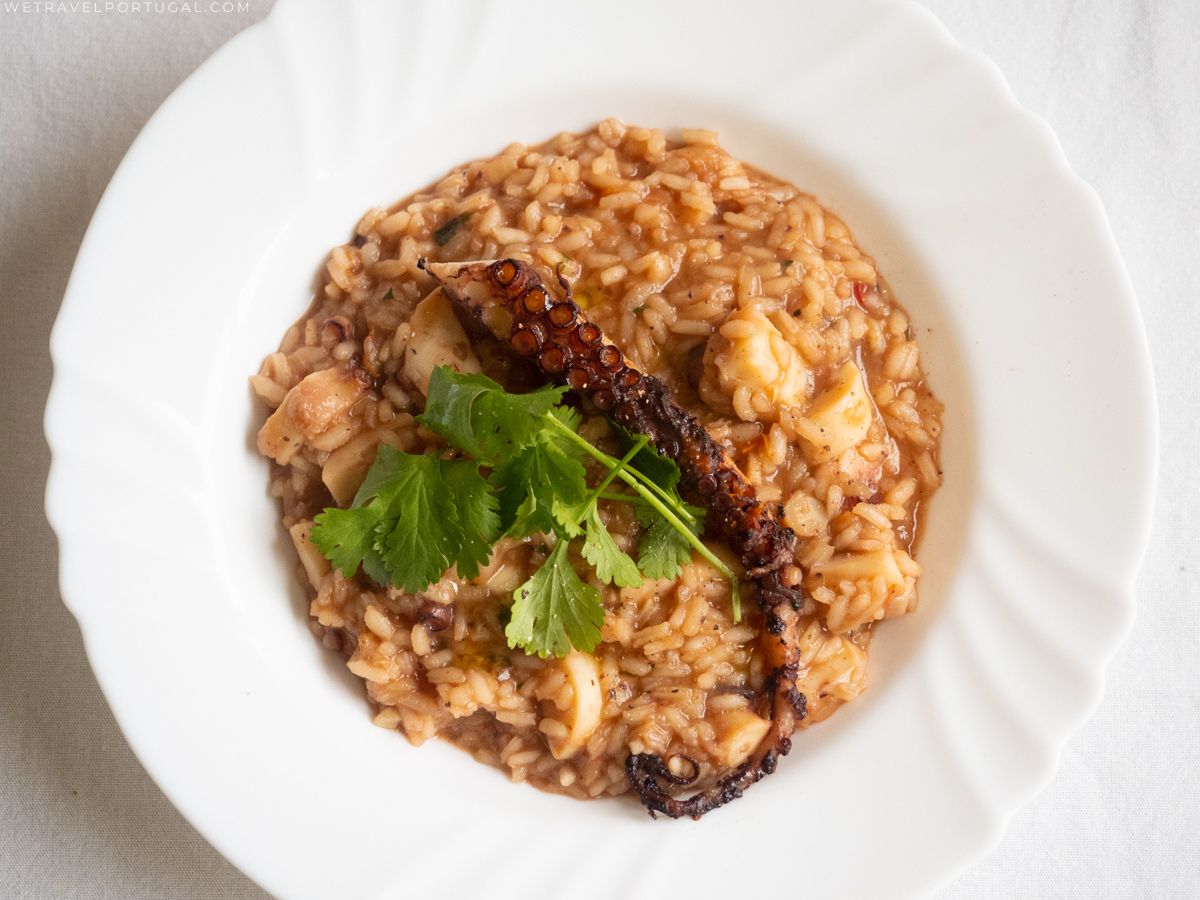Arroz de Polvo or Octopus Rice is a traditional Portuguese rice dish. It comprises Carolino rice, tender octopus meat, onions, garlic, white wine, and a mix of fresh herbs and spices. These classic Portuguese ingredients are all cooked in a rich octopus broth resulting in a rice that’s super creamy and packed with sea flavours!
Local Seafood Dishes in Portugal
One thing you shouldn’t skip when visiting the Portuguese coast, apart from its breathtaking beaches, is trying the local seafood cuisine. You will have plenty of restaurant options to choose from catering to all budgets, and even places specialized in seafood called marisqueiras. While there are lots of dishes we would recommend, such as Seafood Rice and the classic Fish Stew. If you are looking for something really different, and equally delicious, Octopus Rice has got you covered!
It’s s surprisingly rich seafood dish that’s full of flavours, that really captures the essence of coastal food in Portugal. It also happens to be quite simple to prepare and will make you feel like a professional chef!

About our Octopus Rice Recipe
The first part of the recipe consists of preparing the whole octopus. We know that it sounds a little overwhelming, but we guarantee is simpler than it sounds. You will need a medium size whole frozen octopus, in Portugal it’s available in almost every supermarket. Frozen octopus is usually pre cleaned and ready to be cooked, and also has better texture, since freezing it helps to tenderise the meat.
As always there are plenty of different ways to prepare the octopus before combining it with rice, our favourite way is to bake it with onions, tomatoes, garlic, and fresh herbs. You bake it covered with foil, so it creates steam and releases plenty of liquid creating the perfect stock for the rice to be cooked in. This is a similar method we use to prepare Polvo à Lagareiro.

What Type of Rice to Use in Octopus Rice?
As always, we will be using the Portuguese Carolino rice that’s creamy and great at absorbing flavour. However, if you don’t have access to this Portuguese rice, then you can substitute it for any type of risotto rice.
How to Make Portuguese Octopus Rice
The cooking method is similar to the one used for a risotto, where you add the stock little by little, and stir it continuously. These types of rice take a little time to cook, so for around 30 minutes you have one job, to ladle broth, stir rice, and add more broth once the first ladle has been absorbed. Cooking in this slightly intensive and time-consuming way cooks the rice slowly, releasing its starch. The result is a delicious rice that’s creamy, velvety, and warming, making it a perfect choice for dinners with family and friends.

Have you tried this recipe? Let us know in the comments! If you liked this recipe, we think you will also like this Monkfish Rice and this Razor clam Rice, both classic Portuguese rice dishes using local ingredients!
More Portuguese Rice Dishes You Will Love!
- Bean Rice – Arroz de Feijão
- Tomato Rice – Arroz de Tomate
- Bacalhau Rice – Arroz de Bacalhau
- Monkfish Rice – Arroz de Tamboril
- Razor Clam Rice – Arroz de Lingueirão
- Seafood Rice – Arroz de Marisco
- Duck Rice – Arroz de Pato
- Rice Pudding – Arroz Doce
If you like discovering Portuguese recipes, sharing your own, and commenting on your favorite Portuguese Food, Drinks & Recipes we’d love for you to join our Facebook group!


